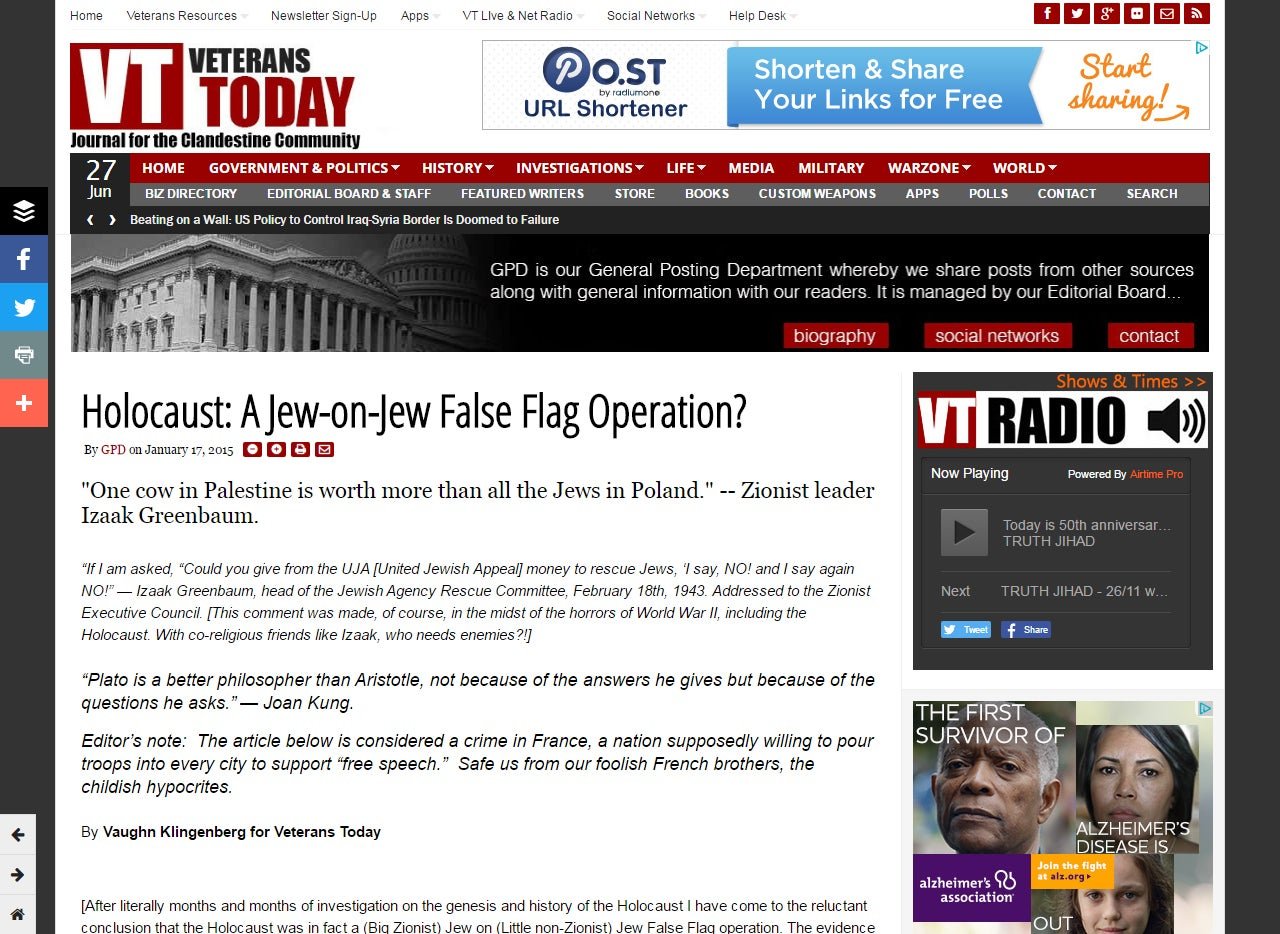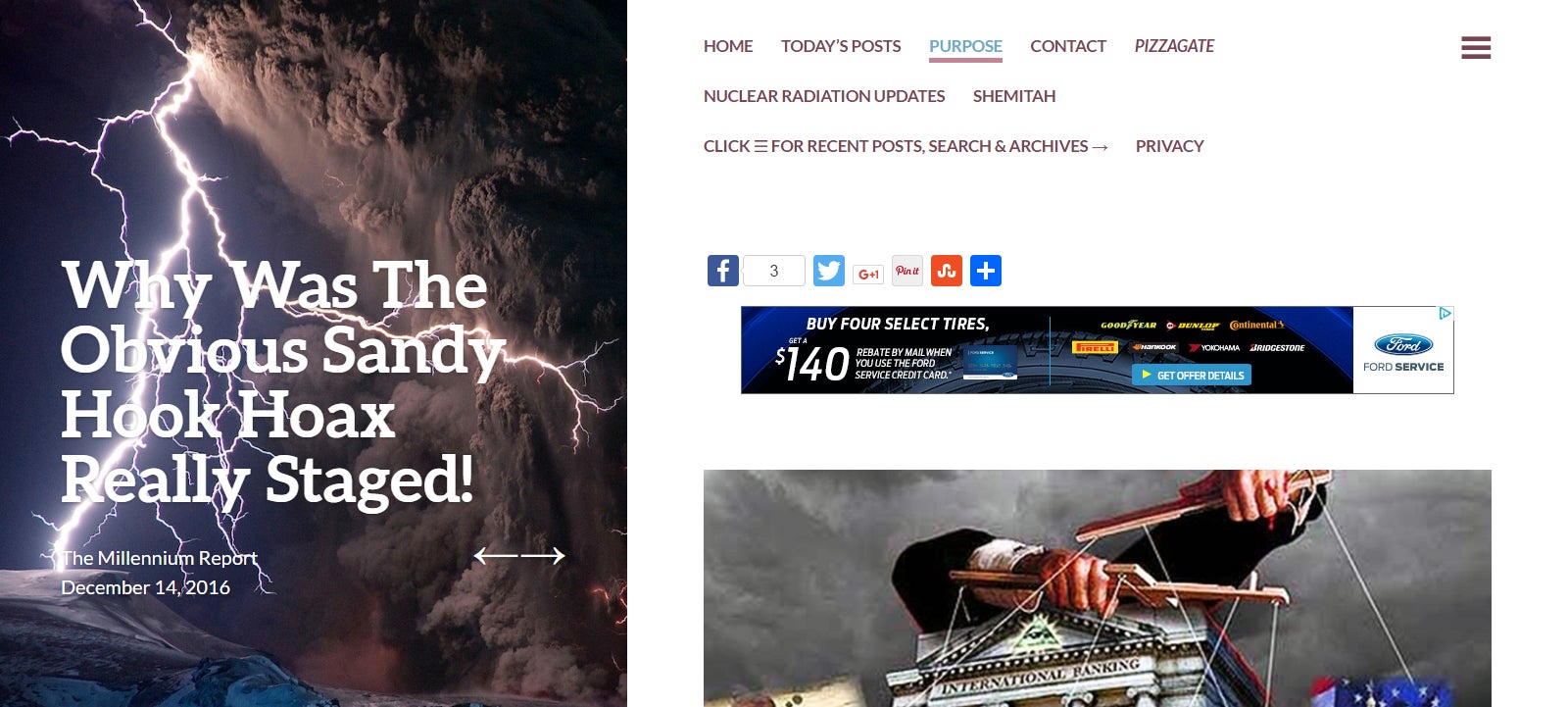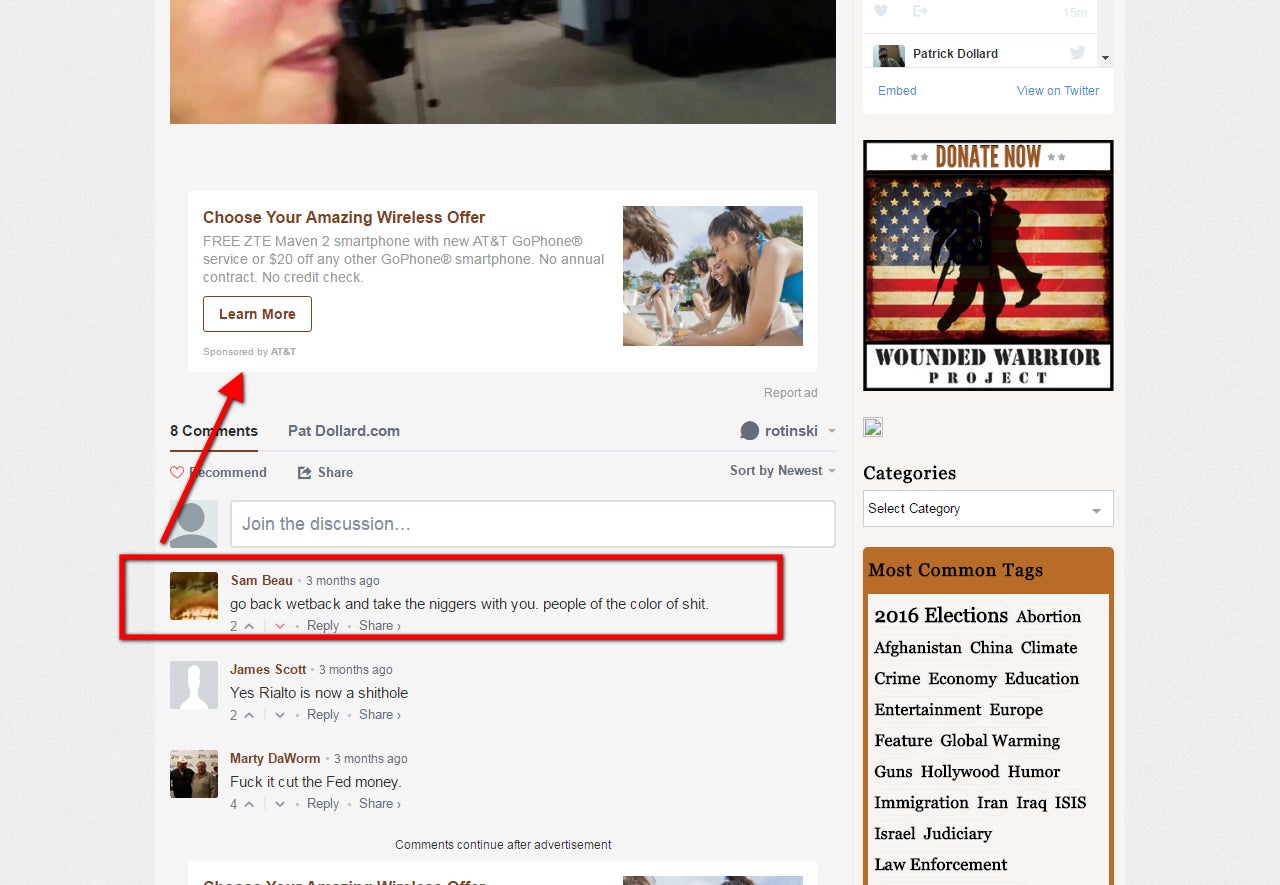Dear Google: Please stop using my advertising dollars to monetize hate speech
My company sponsors online hate speech, fake news and racist propaganda. It’s not that we are trying to—and given the small budget of the engineering company I run, my contribution may only amount to pennies a month. But in total, online advertising accounts for tens of billions of dollars annually, so even tiny percentages mean millions of dollars directed from the bank accounts of advertisers to the pockets of Holocaust deniers, Sandy Hook hoaxers and promoters of vile, racist content.


My company sponsors online hate speech, fake news and racist propaganda. It’s not that we are trying to—and given the small budget of the engineering company I run, my contribution may only amount to pennies a month. But in total, online advertising accounts for tens of billions of dollars annually, so even tiny percentages mean millions of dollars directed from the bank accounts of advertisers to the pockets of Holocaust deniers, Sandy Hook hoaxers and promoters of vile, racist content.
The reason advertisers like me inadvertently sponsor and monetize hate speech is that ad-tech companies like Google have partnerships with publishers who allow and promote this type of content. And unless advertisers proactively identify and block objectionable sites as I try to do, their ads may appear there.
(Editors Note: In the time since Quartz first reviewed this article for publication, some of the sites pictured below have stopped running advertising, but similar sites have cropped up running the same juxtapositions of hate speech and advertising delivered via Google products.)
Here’s just one example I collected next to an article asking, “Holocaust: A Jew on Jew False Flag Operation?” I saw ads from Celebrity Cruises and the Alzheimer Association. Do I think the marketing teams of those organizations want their money monetizing that? Doubtful. But that’s the problem with the current state of online advertising: No one knows where their money is going.


While the First Amendment is essential to American democracy, there is no constitutional right to have hate speech funded by advertisers too busy to keep track of their publishing partners.
My disgust with this situation, my own feeling of culpability and the knowledge that most advertisers like me have absolutely no idea where our money is being spent has turned me into an activist.
As part of a group called Sleeping Giants, I go to hate sites a few times a week, collect screen grabs of the sponsoring advertisers, tweet the screen shot to the company and hope somebody notices and cares enough to fix the problem.
To be clear, I don’t care if my ads are on conservative or liberal sites. I’m trying to find customers for my business, not support one party or political point of view. There are political sites on the left and right that, though I disagree with them politically, I don’t mind supporting with advertising.
What I do mind is that because an antisemitic site called “Jew World Order” has a publishing deal with Google, my ads could appear on that site and my money could compensate that publisher.

Sandy Hook Truthers disgust me, and articles like “Why Was The Obvious Sandy Hook Hoax Really Staged?” are repulsive to me, but unfortunately, because Google still has a publishing partnership with that site, unless advertisers proactively block that domain, as I did, they may provide income to the person who wrote that article.

I also have no interest in sponsoring sites that allow unmoderated hate speech on their comment boards. If a site allows hundreds of examples of the ‘n word,’ threats to minorities and holocaust denial to go unmoderated, then that site’s values and mine are not aligned, and I don’t want my ad dollars to fund them.

Until about a decade ago, advertisers had a generally good idea about the kinds of content their money was sponsoring. And market forces sometimes held publishers accountable when content on TV or print went beyond the advertisers’ comfort zone.
But growth of online publishing has severed the advertiser-publisher relationship, and one result is normalization of hate speech and fake news as monetizable content.
Fixing this is a lot less difficult than Google would lead you to believe. For years, ad-tech companies have taken steps to block ads of pornography sites. They have also in recent months announced efforts to control advertisers’ exposure to hate speech and fake news.
But Google’s reliance on algorithms rather than human judgement has lead to significant failures. Including, removing ads from sites reporting about hate groups, while still running ads on actual hate group sites.
But for now, Google and the ad-tech industry in general have taken few visible steps to ensure racist content isn’t profitable. Until that day, I will keep taking screenshots and tweeting and hoping someone at Google wakes up to the harm the company has caused and continues to cause.